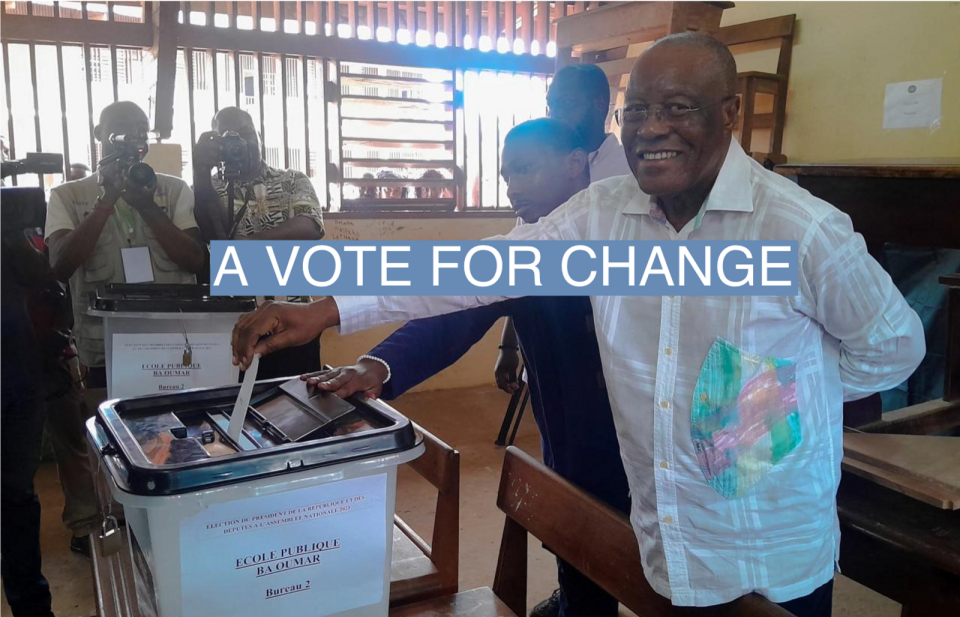Gabon's opposition is urging the military to hand power back to civilians
The News
Gabon’s main opposition alliance has urged the international community to put pressure on the military junta that seized control of the country to hand power back to civilians.
It follows the overthrow of President Ali Bongo on Wednesday shortly after he was declared the winner of a contentious election. Voting in the central African country took place on Aug. 26.
“We hope that the international community will stand up in favor of the Republic and the democratic order in Gabon by asking the military to give back the power to the civilians,” a spokesperson for Alternance 2023, a coalition of opposition parties, told the BBC.
The spokesperson, Alexandra Pangha, said the junta had not shown any indication that they intended to hand power back to civilians. “Up to today we have been waiting for an invitation from the military so that they can talk to us and tell us exactly what’s the plan,” she said on the corporation’s Newsday program.
Know More
Junta leader Brice Oligui Nguema, 48, is set to be sworn in as transitional president on Monday. No details have been given of how long any transition period would last.
In 2018, Nguemaa, a general in the Gabonese army and a cousin of Bongo, became the leader of an elite unit of soldiers that protected Bongo in the president’s official residence in the capital, Libreville.
In the run up to the election, five of the main opposition parties came together as Alternance 2023 to support Albert Ondo Ossa, a 69-year-old former education minister. Gabon’s electoral body said Bongo had won a third term after securing 64% of the vote compared with nearly 31% for Ondo Ossa.
Alternance 2023 cried foul even before Bongo was announced as the winner of the vote, for which there were no international observers. However, the government blocked internet access after voting and provisionally banned three French broadcasters.
The opposition group has called for a recount of the vote, the results of which were annulled by the military. Alternance 2023 claims Ondo Ossa would emerge as the real election winner, to whom the military should cede power.

Alexis’s view
Alternance 2023’s calls for a democratic handover in Gabon tap into the central question that unites the various coups seen in Africa in recent years: when will military rulers hand back to civilians? Of course, each of the countries that has undergone a coup is different, plus the question assumes that they eventually will cede control.
In a number of countries — from Sudan, where generals took over following the overthrow of longtime leader Omar al-Bashir, to Mali, Burkina Faso, Guinea and, more recently, Niger — the military have taken over claiming to have seized power in the name of the country’s citizens. They have then outlined proposed timetables to restore civilian rule.
The issue of a handover is at the heart of efforts to stabilize the situation in Niger, where the junta’s removal of President Mohamed Bazoum in July prompted West Africa’s regional bloc to threaten the possibility of military intervention unless “constitutional order” was restored. In that particular case, the junta’s plan to hand over power within three years was rejected by the Economic Community of West African States and neighboring Algeria has proposed a six-month transition. But there is no sign of an agreement on a length of time upon which all parties would agree.
As we’ve seen, transitions have not been proven to be straightforward. In Sudan, the proposed transition has fallen apart with warring generals plunging the country into a civil war. And Burkina Faso’s 24-month timeline looked in jeopardy when the junta that agreed the handover period was itself overthrown — although the military ruler Ibrahim Traore agreed to respect the plan.
Gabon’s coup has been unlike those in West Africa, mainly because those were stemmed from instability caused by insurgent groups operating in the Sahel whereas Bongo’s ousting was driven by animosity that had grown towards his family after nearly 56 years in power during which most citizens had not benefited from the oil-rich countries mineral wealth. The country will differentiate itself further if its junta announces a short transitional period and opts to quickly hand power back to civilians.
Democratic rule matters because it’s grounded in accountability and gives ordinary people a sense of agency. Frustration grows when people feel unable to hold governments accountable for their policies and vote them out. Without this, people in the coup hit countries will miss out on economic development and an improved quality of life in years to come.
Step Back
Gabon’s coup was the eighth military takeover in West and Central Africa in the last three years. However, as Semafor Africa’s Alexander Onukwue reports, there are key differences between the putsch in Gabon and other recent coups in the subregion.

